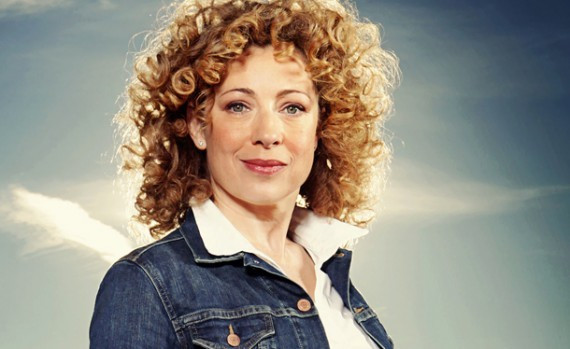Doctor Who: It's Time For a Female Doctor [BLOG]

At the weekend Matt Smith revealed that he's calling time on Doctor Who, vacating the Tardis in the Christmas Special later this year. The news that the 11<sup>th incarnation of the Time Lord is off has sparked frenzied speculation over who will step in to his shoes and become the 12th person to play the Doctor? And with that comes another question of whether for the first time the Doctor could transform into a woman?
It's certainly possible, and has even been hinted at in previous storylines. Neil Gaiman's Hugo-award winning episode The Doctor's Wife established quite clearly that Time Lords can change sex when they regenerate to Time Ladies. But just because the Doctor can change sex, should we then have a woman behind the controls of the Tardis?
Traditionalists will moan that it has always been a man in the role and that to change the formula would break the show. Indeed the very notion sickens some people, such as Christopher Stevens of The Daily Mail. "Why must the Doctor fall victim to a politically correct trend for 'gender neutral' childhoods?" he cries, adding that if a woman were to take over the Tardis, "The essence of the character - as an archetypal hero, not heroine - would be lost."
This frankly ridiculous charge resides in the premise that only boys are compelled to watch science-fiction action heroes. I have no idea what an archetypal heroine is, but I do know that a hero, regardless of gender, is someone who represents the best we can be, a person willing to do whatever they can in order to help others and do what's right. Ruled by his head and two hearts, the Time Lord cares for those in need and is smart enough to work out how to save the day. Are these qualities only found in a male? The Doctor is not a man or a woman, but first and foremost an alien, an immortal god-like figure that goes round saving the universe. Heroism is gender-neutral and to have a female Doctor is not an act of political correctness but one of open-mindedness.
"Stereotyped sex roles"
As Laura Helmuth notes for Slate, "A female Doctor would go a long way toward making up for the show's recent regression into tiresome stereotyped sex roles." Steven Moffat's tenure as lead writer had produced some barnstorming stories full of jaw-dropping visuals and ingenious writing, but there's no question the roles of the Doctor's female companions have diminished. Gone are the likes of Rose Tyler, the working class girl from a London council estate who takes on the Daleks and wins.
Instead we have companions with gossamer-thin backstory whose identity hinges on how they relate to the Doctor. Amy Pond was 'the girl who waited', River Song 'the girl who killed the Doctor', and now Clara Oswald 'the girl who saved the Doctor'. The recent companions are repeatedly referred to about how they serve the Time Lord rather than as fleshed-out human beings. Contrary to what Christopher Stevens might believe, there are also legions of young girls who enjoy Doctor Who, but are desperately in need of a role model. This isn't change for the sake of change, this is progression for the sake of television.
Tearing up Tradition
Before I Love Lucy people believed women couldn't do comedy. Before Xena: Warrior Princess people thought women couldn't be action heroes. Before Buffy the Vampire Slayer people thought women couldn't be action heroes without being sexed up for a male audience. So-called tradition is being torn up all the time by visionaries bold enough to realise the role television has in both reflecting and creating cultural change.
This November will witness a blockbuster 3D episode of the show to celebrate 50 years of Doctor Who on our screens. It's an astonishing achievement for the longest-running science fiction show of all time to have lasted half a century, and the reason why it has survived is because it has not been afraid to reinvent itself to match the times.
The series began in 1963 when there only existed two channels in the UK, and the newness of the medium meant the sojourns in the Tardis correlated with the exotic escapism audiences sought from their television sets. By the noughties a new wave of viewers fell in love with a show that is now indebted to spectacular CGI and soap opera storylines in order to stay fresh and popular. But if Doctor Who wants to last another 50 years and remain in the hearts of viewers not just in the UK but around the world it needs to keep up with the cultural zeitgeist and show how much our society has evolved in that time. If we want to keep on travelling in the Tardis, we need a first female Doctor.
READ:
Doctor Who Season 7 Episode 13 Review - The Name of the Doctor
© Copyright IBTimes 2025. All rights reserved.






















